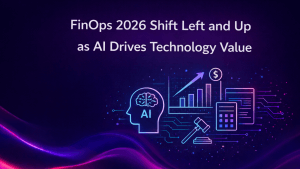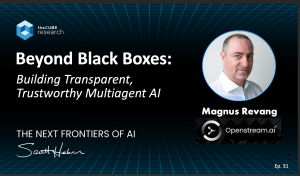
Serverless computing has already invaded public cloud services in a big way. Now, it’s coming to private clouds as well.
As discussed in this Wikibon report from last October, more open-source serverless frameworks are entering the market, providing options for enterprises that wish to deploy them entirely inside their private clouds or hybrid private/public serverless computing architectures.
Recently, the industry witnessed a key milestone in the maturation of serverless as an enabler for event-driven, stateless microservices that can be orchestrated seamless across heterogeneous multiclouds — that is, enterprise cloud computing environments composed of two or more public or private clouds. At this week’s KubeCon event in Copenhagen, Denmark, Iguazio announced that its open-source Nuclio serverless environment (logo pictured), which it calls a “continuous data platform,” is now generally available to enterprise customers as a managed service.
Iguazio is at the forefront of vendors providing flexible serverless fabrics that can be deployed into private, public or hybrid multicloud environments, and even on laptops and low-power “internet of things” edge devices. Already, it has Nuclio customers in manufacturing, healthcare, financial services, media and telecommunications that have deployed it on-premises in their multiclouds. Bear in mind that Nuclio is far from the only open-source projects in the serverless arena, considering that other initiatives such as Apache OpenWhisk, Fission, Gestalt, Fn and IronFunctions have achieved varying degrees of traction.
Based on an open-source project that was launched in December 2017, Nuclio provides a serverless environment for real-time analytics, high-volume data processing and artificial intelligence. It supports low-latency, continuous serverless event and data processing in distributed multiclouds. A Nuclio processor listens in on event sources and parallelizes user-function execution through a constellation of worker nodes. It is deployable as a standalone binary for IoT devices and other nodes, as a microservice that can be containerized in Docker, and orchestrated with Kubernetes. It abstracts data resources from function code, enabling code portability and data-path acceleration.
Ease of microservices development is one of the key advantages of serverless environments over other approaches to building cloud microservices. What Nuclio offers in that regard is an application programming interface abstraction layer for building complex, orchestrated microservices that can be invoked transparently across multiclouds. The API frees developers from having to worry about managing the runtimes in which their services execute, whether they will scale automatically or even whether they can be ported easily from one cloud to the next. In addition, the environment supports streamlined DevOps workflows for building and releasing event-driven stateless functions into heterogeneous serverless multiclouds.
Standards are a key sign of any industry’s maturation, and Iguazio is making sure that Nuclio evolves in lockstep with the serverless markets moves in that direction. The company is working with the Cloud Native Computing Foundation on defining serverless standards that can span private, hybrid and edge clouds. Already, it has implemented the CloudEvents specifications, which define a standard set of event triggers for ensuring serverless application portability and reuse across heterogeneous multiclouds.
Multicloud serverless interoperability also depends on strong partnerships with public cloud providers, and Iguazio has significant news on that front as well. In its most significant industry partnership to date, it announced that it has teamed with Microsoft to integrate Nuclio natively with the software giant’s Azure cloud services, including the Azure Functions serverless public cloud. Nuclio can now run microservices orchestrations natively in the Azure Kubernetes Service. In addition, full integration with Azure’s Application Insights now enables Nuclio administrators to take advantage of that public cloud’s application telemetry, performance tracking, event correlation, usage monitoring, anomaly detection, log analysis, interactive diagnostics, incident-driven alerting and debugging capabilities. To see Nuclio in action on Azure, check out this YouTube demo.
Here’s Yaron Haviv, Iguazio’s co-founder and chief technology officer, discussing Nuclio, serverless and the company’s engagement with CNCF, along with Doug Davis, cochair of the CNCF’s Serverless Working Group and an IBM Cloud developer advocate, on SiliconANGLE’s mobile livestreaming studio theCUBE at this week’s KubeCon conference:


